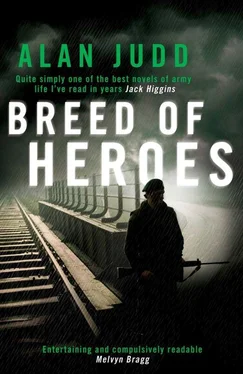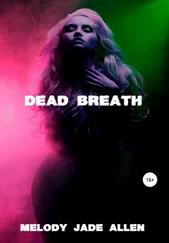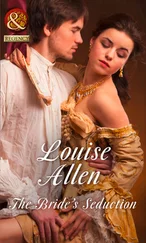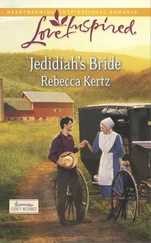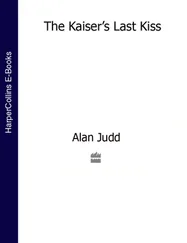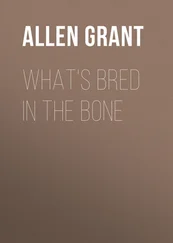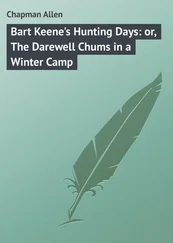
A Breed of Heroes
by
Alan Judd
How then can I live among this gentle obsolescent breed of heroes, and not weep?
From ‘Aristocrats’, by Keith Douglas, killed in action, Normandy, 9 June 1944.
Phrases for
A Breed of Heroes
‘Judd tackles the horror and tedium of Ulster with humour and sympathy, skilfully blending bitterness with farce’
Spectator
‘Brilliant, original. . the triumph of this novel is that it presents a picture of a man tortured by his own conscience and does it with verve, compassion and humour. I have absolutely no doubt that it will become a minor modern classic’
Books and Bookmen
‘An effortless read as well as an intelligent social document’
Guardian
‘A steady, ironic but good humoured view of the boredom, routine pettiness and privations of modern soldiering, punctuated by episodes of pure farce and sudden explosions of horror and madness’
Daily Telegraph
‘Judd writes with the wry detachment of Evelyn Waugh’s Sword of Honour trilogy’
Observer
‘Human, sympathetic and engrossing’
Daily Mirror
Born in 1946, Alan Judd trained as a teacher but instead became a soldier and diplomat. He is now a full-time writer, contributing regular current affairs articles to various newspapers, most frequently the Daily Telegraph , as well as writing regular book reviews and acting as the Spectator’s motoring correspondent. He is the author of several novels drawing on his military and diplomatic experience, the first of which, A Breed of Heroes , was later filmed by the BBC. The Devil’s Own Work , a literary ghost story inspired by Judd’s meeting with Graham Greene, won the Guardian Fiction Award.
Also by Alan Judd
Short of Glory
The Noonday Devil
Tango
The Devil’s Own Work
Legacy
Uncommon Enemy
‘Northern Ireland is perfectly simple really,’ said Edward Lumley, the company commander. ‘There are no two ways about it.’
He gazed at the passing Midlands countryside, then at the faces of his three platoon commanders and then at the dirty railway carriage floor. The frown which had creased his forehead suddenly cleared.
‘All you have to do,’ he continued, ‘is to thump ’em when they step out of line, and the rest of the time leave ’em alone. That’s all they want, really, you know, just to be left alone. There’s no doubt about it.’
He sat back and folded his arms. He was a balding, genial man with a round, foolish, good-natured face. After some years as a major he was still a company commander. The fact that he had not made staff college did not bother him, though it bothered his wife. He looked now for responses from his three young platoon commanders.
Charles Thoroughgood glanced up from his book in acknowledgment. The other two, Tim Bryant and John Wheel, nodded their consent. Tim added that there was no doubt at all. They were both a couple of years younger than Charles, products of Sandhurst, keen, clear-eyed and subservient. Charles had also been to Sandhurst but before that to Oxford. He wondered sometimes whether he might have been happier in the Army if he had not been to Oxford. He was tall, red-haired and freckled. There was a threatened ungainliness in his body that was never fully realised because his movements were gentle and slow, but there was something untidy and sprawling about the way his limbs were put together. He had never noticed this before joining the Army but it had proved an important factor in his relationship with the NCO instructors at Sandhurst, who had reminded him of it daily. He crossed his legs carefully now, trying not to dislodge Edward’s kit from the seat opposite. The floor beneath his legs was covered by his own.
‘I didn’t go much on old What’s-it’s lectures about the origins of the Northern Irish problem,’ said Edward. ‘You know who I mean, that poof — Philip Thingie, the education officer. Philip Lamb. All that stuff about the eleventh century: can’t see what that matters to anyone now. And then when he went on about the modern period I thought he meant now, you know, or at least the twentieth century, not the seventeenth. Christ knows what the Ackies thought.’
Soldiers in No. 1 Army Assault Commando (Airborne) — No. 1 AAC(A) — were often known as ‘Ackies’. Their reactions and opinions were frequently used as an acid test for any theory, policy, place or person. Tim, C company’s second platoon commander, shifted in his seat. ‘I’m not so sure. I thought it was quite interesting. I mean, at least it gave you an idea of the background and whatever.’
‘A right bloody mess.’
‘Exactly. I think the Ackies appreciated it, on the whole. At least they have an idea what they’re getting into.’
Edward nudged Charles with his boot. ‘What do you think, Professor? You can read and write better than Philip Lamb. Did he do a good job?’
‘I thought he did. I knew more about Ireland after his lectures than I did before them. And I thought he put them over quite well considering his audience was six hundred tired soldiers crammed into a gym after an exercise.’
‘I was bored rigid.’
‘Perhaps that’s because you were standing.’
‘Point there, Charles. Not for nothing you went to Oxford.’
Charles’s having been to Oxford was always a cause of comment. Opinions varied throughout the battalion. Most people thought it meant he was very clever, his brother officers were usually envious but would not admit it, the RSM, Mr Bone, was convinced he was a dangerous subversive, while the CO thought it was three years wasted out of a young man’s life that would have been better spent commanding a platoon. After his initial surprise at being treated as though he had a criminal record Charles had tried to play down his past, but in an extrovert society where reticence was weakness this was a bad tactic. He had been tempted then to become aggressively academic but had sensed that this would be playing into the hands of his critics. Accordingly, he had become stubbornly matter-of-fact, an attitude that allowed as little scope for criticism as for his own self-expression.
Charles’s first interview with the CO was not something he was ever likely to forget. Lieutenant-Colonel Ian Gowrie, MC, was a tall, energetic, black-haired man with earnest brown eyes and regular, good-looking features that were marred only by a too-tight compression of his lips, as though he were trying to express great determination. Charles had heard whilst at Sandhurst that Gowrie was a fanatic, an ogre almost, setting near-impossible standards for himself and others. His standards were apparently derived from a Boy’s Own conception of life, according to which the good would win through in the end because of their faith, loyalty and perseverance. But there would be many setbacks on the way.
On joining the battalion Charles was shown in to the CO by the obliging and, he sensed, sympathetic adjutant, Colin Wood. He marched in and saluted. The CO looked up from his desk. ‘Go out and come in again,’ he said.
Charles marched out. He felt it was best to march, being unsure whether it was regimental tradition that subalterns up for interview with the CO always had to enter twice or whether, as in one memorable incident at Sandhurst, his flies were undone. He turned about in the adjutant’s office, knocked, was bidden to enter, marched in, halted and saluted again. If anything, this attempt was even more awkward than the first but the effort must have showed because the CO invited him to sit down. ‘Welcome to the battalion,’ he said.
Читать дальше
